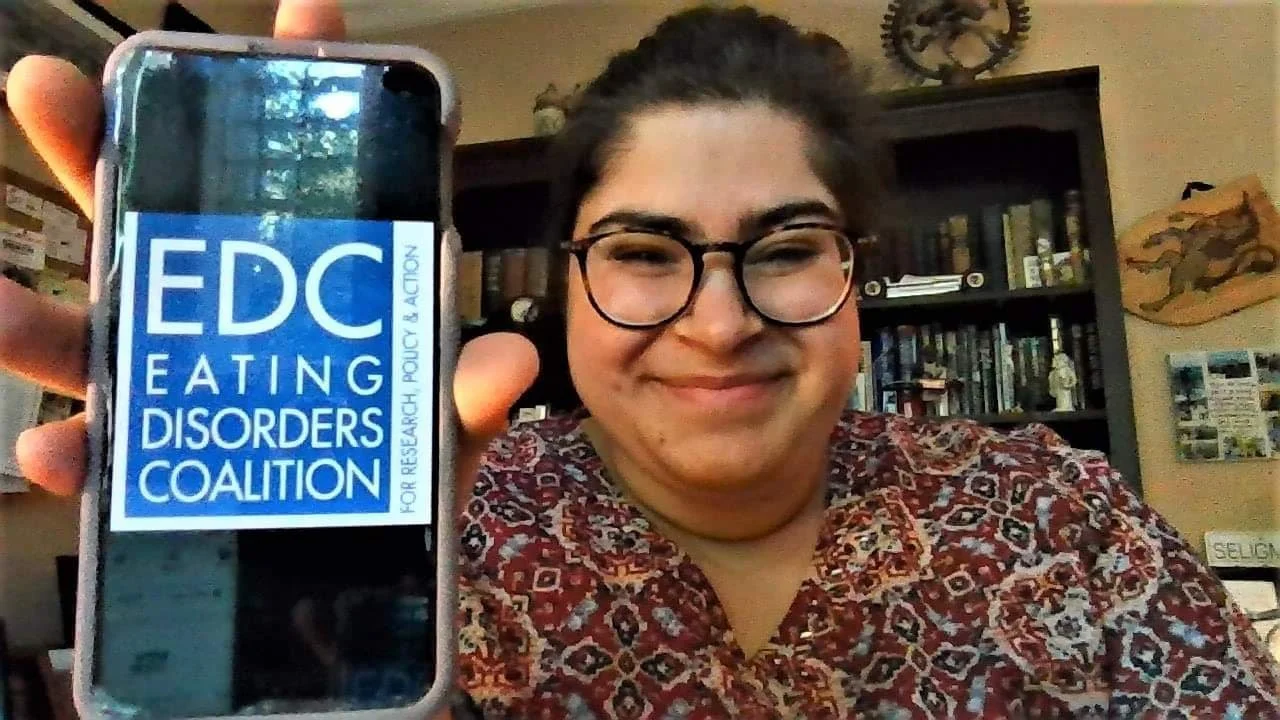The Power of Advocacy & Activism in the Eating Disorder Field: Mental Health Action Day — May 19th, 2022
Taking action in the eating disorder field isn’t just about raising awareness. In this piece, Project HEAL MarCom Manager Serena Nangia shares her two cents on advocating with the Eating Disorders Coalition and what it means to make a difference as one individual in the midst of systemic issues that feel insurmountable.
“You Won’t Become Fat”: Why Unlearning Fatphobia was Integral to My Recovery
In eating disorder recovery spaces, fatphobia shows up in deeply harmful ways, including through pernicious, all-too-common assurances from clinicians that their clients “won’t get fat”. Such remarks uphold the oppressive belief that being fat is something to avoid and reprehend—that fat people ought to be devalued. Sarina illustrates why we must interrogate our own anti-fatness in recovery and beyond, shaping more safe, equitable spaces for all bodies.
TEARS SHED IN THE DOCTOR’S OFFICE: WEIGHT STIGMA IN MEDICINE
Under a medical framework that glorifies weight as a barometer of health, weight stigma is deeply pervasive. Doctors’ anti-fat behaviors and remarks (and blanket prescriptions to “just lose weight”) cause so much trauma and harm. High school junior Siya Angras relays how from the age of 10, she was told her body was not good enough and that she must be “unhealthy”. This fueled her struggles with an eating disorder, especially as she navigated diagnoses of high cholesterol and PCOS and faced both South Asian and U.S. beauty standards.
WHAT THE DSM-5 GETS WRONG ABOUT EATING DISORDERS
The DSM-5 is often hailed as the cornerstone of clinical psychology and psychiatry. Yet Project HEAL Ambassador Regina Colie illuminates how the DSM-5 often upholds structural oppression in the mental health space and imposes rigid labels on what are in fact deeply individualized struggles influenced by socio-political factors. As a future clinician, Regina harbors so many critical insights.
NAVIGATING ED RECOVERY IN A LARGER BODY
Due the virulent anti-fatness that permeates society, we tend to praise restrictive eating disorder behaviors that result in weight loss while vilifying binge-eating and weight gain. Project HEAL Ambassador Lexie Manion relays how she was consequently deemed “gross” and “unworthy” when struggling with a debilitating eating disorder. Through the fat liberation movement, she was able to find a supportive community that catalyzed a transformation in her understanding of weight and “health”. We are reminded that all individuals with eating disorders deserve unwavering compassion and equitable, life-saving care.
“BODY POSITIVITY” OR THINNESS CONFIRMATION? ANTI-FATNESS IN EATING DISORDER RECOVERY SPACES
In recent years, the body positivity movement has achieved great prominence, with many regarding it as a means of promoting self-love and hence minimizing its social justice roots. As Project HEAL Ambassador Grace Bragdon illustrates, the co-opting of body positivity by thin folks epitomizes a deeply problematic trend in which those with certain privileges capitalize on movements established by and for individuals with marginalized identities. We are reminded that what many deem “body positivity” is virulent anti-fatness, just glamorously concealed and repackaged.
SUBMIT A GUEST BLOG
Project HEAL would love to share any and all stories that are aligned with our mission, vision and/or values. If you have struggled with an eating disorder, have experienced and/or overcome barriers to accessing treatment, or are an ED provider and/or recovery advocate — we want to hear from you!
We are especially interested in sharing stories from voices often excluded from and/or underrepresented in the eating disorder recovery community. Submitting a blog proposal does not necessarily guarantee publishing — we reserve the right to respond with proposed edits (for your approval) or pass on publishing your proposed content.
Thank you in advance for wanting to share your story with us and our community!







